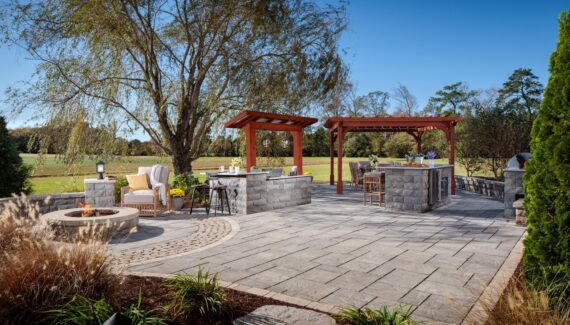(ARA) – The American home may be shrinking, but not the Great American Dream. Americans are still living large, just doing so in smaller spaces.
To some trend-watchers, the downscaling of the American home comes as good news. Architects, designers and social observers say our willingness to resize our floor space means Americans are rethinking the way we really live and how we use whatever space we do have. Home, they say, has become less about impressing others and more about making ourselves happy. And since we are mostly baby boomers – that tidal wave of Americans born between 1946 and 1964 – who have long been accustomed to getting what we want, happiness is often defined in terms of luxuries and personal amenities.
“Natural materials like American Hardwoods are redefining the word ‘luxury,'” says Linda Jovanovich of the American Hardwood Information Center. “Hardwoods bring richness and warmth to even small rooms, whether it’s used on the floors and walls, or crafted into built-ins. Custom hardwood furnishings like bookcases and cabinets make a home personal, yours alone, and isn’t that the ultimate luxury?”
This new definition of luxury – top-quality, mostly natural materials, careful attention to architectural details like natural wood window frames and mouldings – is one that architect and author Sarah Susanka agrees with. And what Susanka thinks matters.
In 1998, her professional hunch launched what has become the “build-better-not-bigger” movement, when she published the first in her best-selling series of “The Not So Big House” books.
Her mantra is indeed, think smaller, and she also believes that “luxury comes from the materials we surround ourselves with. Beauty comes from natural materials. You can see where they come from – in the grain, the veining. The more natural the materials, like real hardwoods and granite, the more content you are. There’s a quality you can’t name, but you can feel it.”
Gale Steves, author, editor and design industry consultant sums up a similar concept in her book about “Right-Sizing Your Home.” According to Steves, “Right-sizing is about making the best use of the spaces you have for the way you live.” She suggests these ways to best enjoy the shrinking and changing American home.
* “Create a room within a room,” Steves advises. Her ideas begin at floor-level. Install hardwood flooring throughout to unify the spaces and make them look larger, then use area rugs to define separate areas. Lay hardwood on the diagonal to set off special architectural features. Create a “rug” under a dining table with an inset frame of contrasting hardwood. Or outline an entire room with two courses of contrasting hardwood.
* More ideas: Use a sectional sofa to delineate an intimate seating area within an open floor plan. And – of special interest to the many boomers who are eschewing retirement – find a standing wood-panel screen to create privacy or isolate a work space, say, in a bedroom office area.
* And don’t forget to make it sustainable. Living green is a high priority for the anti-McMansion generation. As Susanka sees it, we should think of the 21st-century house as “a well-tailored suit: you use less material, but it fits you perfectly.”
So while the size of the “average” U.S. home may be shrinking, remember that it’s more about space that works and that satisfies the psyche in the process that defines the ultimate in luxury. Think custom kitchens with pro-quality appliances, posh home-spa baths, stone countertops and the beauty and warmth that only come with hardwood flooring, cabinetry and millwork.
For more information on American Hardwoods, visit www.HardwoodInfo.com.


